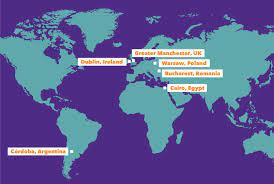This first report focuses on providing initial recommendations for the development of a global framework to study emerging and re-emerging pathogens of pandemic potential and preliminary recommendations on urgent studies needed to better understand the origins of the COVID-19 pandemic. The report provides background information about the formation and meetings of the SAGO since it was established on 13 October 2021, including an overview of some of the scientific discussions members have had in plenary and as part of technical working groups of the SAGO. The second version of the report includes a timeline, letters to WHO from the SAGO, and clarifications requested by WHO.
The elements recommended by the SAGO to make up a global framework currently include: • early investigation studies and anthropology • human studies • animal/human interface • environmental studies and ecological studies • genomics and phylogenetics • biosafety and biosecurity.
The SAGO–using these proposed elements of a global framework to study the emergence of a novel pathogen–offers preliminary recommendations to advance our understanding of the emergence of SARS-CoV-2 into the human population. The SAGO has reviewed available findings to date and notes that there are key pieces of data that are not yet available for a complete understanding of how the COVID-19 pandemic began.
Within this report, key recommendations are provided for further studies needed on humans, animals and the environment in China and around the world that would provide additional information and contribute to a better understanding of how SARS-CoV-2 infected the human population and spread. At the present time, currently available epidemiological and sequencing data suggest ancestral strains to SARS-CoV-2 have a zoonotic origin with the closest genetically related viruses being beta coronaviruses, identified in Rhinolophus bats in China in 2013 (96.1%) and Laos in 2020 (96.8%). However, so far neither the virus progenitors nor the natural/intermediate hosts or spill-over event to humans have been identified. Early investigations suggested that the Huanan seafood market in Wuhan played an important role early in the amplification of the pandemic with several of the patients first detected in December 2019 having had a link to the market and environmental samples from the market testing positive for SARS-CoV-2. There are, however, further studies needed to follow up on several gaps in our knowledge. For example, the source of SARS-CoV-2 and its introduction into the market is unclear and it is yet to be determined where the initial spill over event(s) occurred. There is a need to examine environmental samples collected from specific stalls and drains at the market in January 2020 that tested positive for SARS-CoV-2 in areas known to have sold live animals. Furthermore, follow-up studies to identify possible animal sources from which the environmental contamination could have originated from have not been completed. Other essential studies include detailed mapping of upmarket trade of wild/domestic animals sold in Wuhan City and Hubei Province and clinical history and seroprevalence of SARS-CoV-2 antibodies in humans and animals from the source farms of animals sold at Wuhan markets.
The SAGO notes that there has not been any new data made available to evaluate the laboratory as a pathway of SARS-CoV-2 into the human population and recommends further investigations into this and all other possible pathways. The SAGO will remain open to any and all scientific evidence that becomes available in the future to allow for comprehensive testing of all reasonable hypotheses.
The SAGO has not been formed to find the origins of SARS-CoV-2 but rather has been tasked with advising studies that are necessary to gather evidence to better understand the origins of SARS-CoV-2, and more broadly, origins of emerging and re-emerging future epidemics/pandemics. The SAGO will continue to meet regularly and discuss emerging evidence and looks forward to reviewing findings from the studies recommended here within and providing further advice to WHO.
Download Scientific Advisory Group for the Origins of Novel Pathogens (SAGO)











